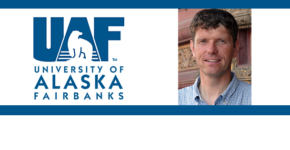 Artificial intelligence and machine learning can teach us about the future.
Artificial intelligence and machine learning can teach us about the future.
Falk Huettmann, associate professor of wildlife biology at the University of Alaska Fairbanks, explores the benefit to the public good from these technologies.
Falk’s research interests include wildlife ecology, seabirds, predictive GIS modeling, web-based wildlife databases and metadata, spatial aspects of population viability analysis (PVA), future landscape scenarios of wildlife habitat, landscape ecology, Russian far east, tropical ecology, conservation steady state economy.
Machine Learning and Artificial Intelligence
Over the last 30 years we were able to track progress on Artificial Intelligence (AI) and Machine Learning (ML) in real life. But, arguably, without addressing the environment and the wider public good any progress for mankind cannot be achieved.
While industrial technology is pushed, hyped and on the rise, the required wider peaceful and more beneficial and reflective use of AI and ML remains somewhat overlooked.
So, in the last 20 years we have applied AI/ML to a diverse set of questions of great public environmental concern world-wide and for progress, involving Open Access principles to assure transparent and repeatable science.
The study subjects we cover include 1,000s of biodiversity species, many endangered species and their habitats, high-pandemic diseases, human livelihoods, global economic governance, climate predictions, as well as industrial impact assessments on land, sea and the atmosphere across scales (global to local).
Those projects found their use in high-profile court cases, were presented at international conferences, published in the peer-reviewed literature and with our (text) books all over the world, usually helped by our students. However, the uptake to reach sustainability remains too slow and is highly ineffective, which hints towards bigger and underlying cultural and policy problems explaining why there is so little change but ‘business as usual’ still prevailing that destroys the earth and man-kind.
Disciplines and their institutions that suffer from those inherent problems come from Fisheries, Forestry, Biology and Wildlife, Economy, Medicine. Climate Change questions, Protected Area Optimization and Earth Planning. Courts and constitutions are also directly involved.
We are happy to show examples and elaborate on ethics with an outlook of those problems and how to overcome them on a policy and cultural level for the telecoupled Anthropocene and future generations.


Comments
2 responses to “Falk Huettmann, University of Alaska Fairbanks – Machine Learning and Artificial Intelligence”